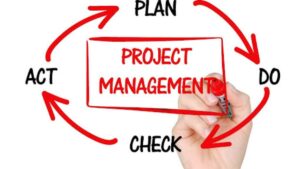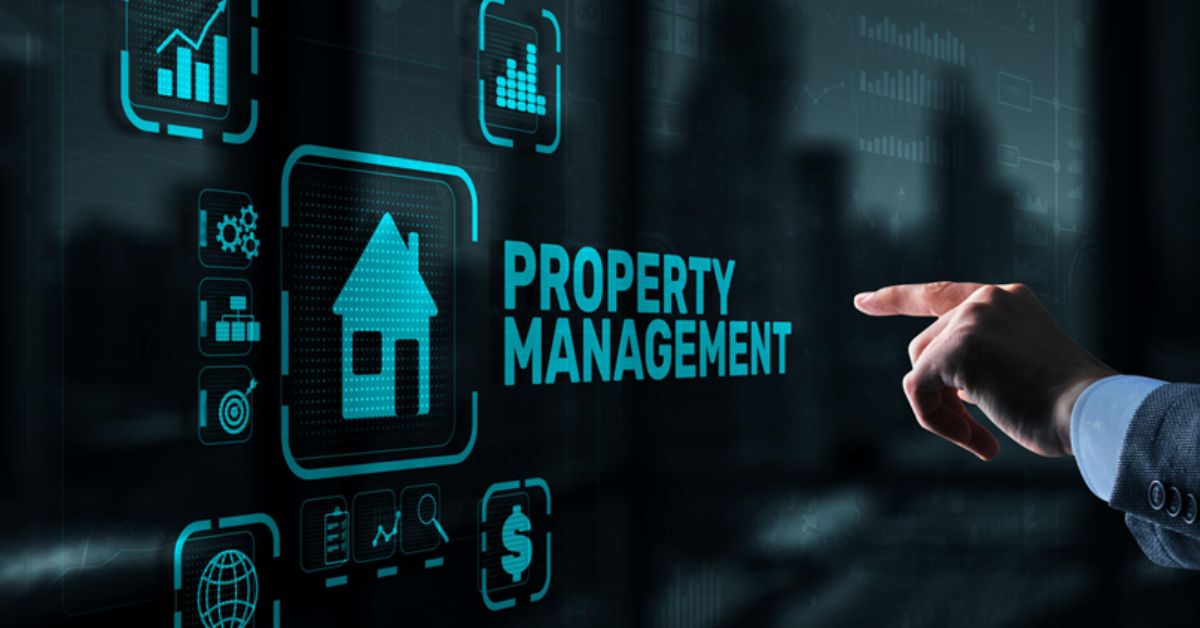REAL ESTATE
Critical Mistakes That Can Derail Your Property Development Project

Property development can be a lucrative venture, offering opportunities to create value and generate wealth. However, it’s also a complex and demanding process where even small missteps can lead to costly consequences. From poor planning to legal oversights, critical mistakes can quickly derail your project, turning a promising investment into a financial burden. This guide outlines the most common errors in property development and how to avoid them, ensuring your project stays on track.

Neglecting Thorough Market Research
One of the most critical mistakes developers make is skipping or rushing through market research. Understanding the target market is fundamental to a successful project. Without proper research, you may end up with a development that doesn’t appeal to buyers or tenants, leading to extended vacancies or unsold units.
Thorough market research involves analyzing local demographics, demand trends, and competition. Determine who your ideal buyers or tenants are, what they value most, and how your project can meet those needs. By grounding your development in solid market insights, you increase the chances of meeting demand and achieving profitability.
The Financial Oversight That Could Cost You
Failing to secure the right financing can derail your project before it even begins. Without proper funding, critical expenses like land acquisition and construction can become unmanageable. In the middle of the process, property development loans play a crucial role by providing the financial backing needed to keep projects on track. Overlooking this option or failing to prepare a strong loan application can lead to significant cash flow issues and delays. Proper financing isn’t just helpful—it’s essential for ensuring your development reaches completion and delivers the returns you envisioned.
Underestimating the Importance of Feasibility Studies
A feasibility study evaluates the practicality of your project by assessing factors such as costs, expected revenues, and potential risks. Skipping this step or conducting it poorly may result in financial losses or a project that’s impossible to complete.
Invest in a comprehensive feasibility study before committing to any property development project. This should include site evaluations, cost analyses, and assessments of legal and environmental constraints. A well-executed study ensures you have a realistic understanding of the project’s viability.
Choosing the Wrong Location
The location of your property development plays a significant role in its success. A poor location can diminish the appeal of your project, regardless of its quality. Factors like accessibility, proximity to amenities, and neighborhood reputation heavily influence property value and market demand.
Take the time to carefully evaluate potential locations. Consider future infrastructure developments, zoning regulations, and market trends in the area. An attractive location not only enhances your project’s value but also ensures long-term sustainability and profitability.
Poor Time Management
Delays are a common issue in property development and can significantly impact costs and profitability. Inefficient time management, lack of coordination, or unrealistic timelines often contribute to delays. When schedules slip, you may face increased labor costs, missed market opportunities, or penalties from lenders or contractors.
Establish a detailed project timeline with clear milestones and deadlines. Regularly monitor progress and address any delays promptly. Utilize project management software to enhance communication and coordination among team members. Effective time management ensures your project is completed on schedule and within budget.
Ignoring Legal and Regulatory Compliance
Overlooking legal and regulatory requirements is a surefire way to encounter costly delays or even project termination. Property development involves navigating a complex web of permits, zoning laws, building codes, and environmental regulations. Ignorance or non-compliance can result in hefty fines, lawsuits, or forced alterations to your plans
Engage with legal experts and consultants early in the process to ensure your project complies with all regulations. Familiarize yourself with local requirements, secure necessary permits, and document every step. Being proactive in this area safeguards your investment and minimizes risks.
Failing to Build the Right Team
A successful property development project requires a skilled and cohesive team. Rushing the hiring process or choosing inexperienced professionals can lead to costly mistakes, delays, and subpar results. Your team should include architects, engineers, contractors, legal advisors, and project managers with proven track records in property development.
Take the time to vet and select professionals who align with your vision and have experience in similar projects. Clear communication and collaboration are essential for maintaining project momentum and addressing challenges effectively. A strong team is a cornerstone of successful property development.
Misjudging Market Timing
Launching a property development project at the wrong time can result in financial losses. Market conditions, such as economic downturns or oversaturated markets, can diminish demand and reduce property values. Misjudging the timing of your development can leave you with unsold units or lower-than-expected returns.
Stay informed about market trends and economic indicators to gauge the best time to start or launch your project. Working with market analysts and industry experts can provide valuable insights into timing your development effectively. Proper timing maximizes profitability and minimizes risks.
Overlooking Risk Management
Property development is inherently risky, but failing to identify and mitigate risks can lead to project failure. Risks can range from fluctuating market conditions and construction delays to unforeseen environmental challenges. Without a robust risk management strategy, you may find yourself unprepared when problems arise.
Develop a comprehensive risk management plan that identifies potential risks and outlines strategies to address them. Regularly assess and update the plan as your project progresses. By proactively managing risks, you can minimize their impact and ensure the project stays on course.
Failing to Prioritize Quality
Cutting corners to save costs can compromise the quality of your development, leading to dissatisfied buyers or tenants. Poor workmanship, substandard materials, or inadequate infrastructure can tarnish your reputation and reduce the long-term value of your property.
Prioritize quality at every stage of the development process. Invest in skilled professionals, high-quality materials, and thorough inspections. While this may increase upfront costs, it ensures a durable and appealing property that attracts buyers and tenants, enhancing your return on investment.
Neglecting Marketing and Sales Strategy
Even the most well-executed property development project can struggle without a solid marketing and sales strategy. Waiting until the project is complete to start marketing can result in prolonged vacancies or unsold units.
Develop a marketing and sales plan early in the project, including strategies to generate interest and secure pre-sales. Leverage digital platforms, social media, and real estate networks to reach your target audience effectively. A proactive marketing approach ensures a smoother sales process and quicker returns on your investment.

Property development offers immense potential for profit and growth, but it’s not without its challenges. By understanding and avoiding these critical mistakes, you can increase your chances of a successful project. Conduct thorough research, build a strong team, manage risks effectively, and prioritize quality and compliance. With careful planning and execution, you can navigate the complexities of property development and achieve your goals.
REAL ESTATE
Unlock Stress-Free Ownership with Trusted Property Management

Owning a rental property can bring good income but also many responsibilities. Managing tenants, repairs, and payments can take a lot of time.
Trusted property management helps make things easier for owners. It takes care of daily tasks and keeps everything running smoothly. With experts handling the work, owners can relax and focus on other priorities.
The right management keeps tenants happy and properties in good shape. Learn how trusted property management can help you enjoy stress-free ownership.
Reliable Tenant Screening
Finding good tenants is key to a successful rental business. Trusted property management companies use clear screening processes. This helps ensure only qualified renters move in. They verify the following:
- income
- rental history
- background information
This is done before approving any applicant. This lowers the risk of late payments and property damage. With professional help, owners can avoid stressful tenant issues.
The process also saves time since experts handle everything from advertising to lease signing. Having the right tenants means steady income and peace of mind.
Consistent Rent Collection
Late rent payments can affect an owner’s cash flow. A trusted property management team handles rent collection efficiently. They set up easy payment systems for tenants and follow up when needed. This ensures a steady monthly income without the need for personal involvement.
Property managers also manage late fees and payment tracking, keeping finances in order. Their consistent process builds trust with both tenants and owners. With this setup, owners can focus on other goals while their income remains stable.
Professional Maintenance and Repairs
Property upkeep is one of the most demanding parts of being a landlord. Trusted property management includes handling all maintenance requests promptly. Managers have access to reliable contractors who provide quality repairs at fair prices.
They inspect properties regularly to prevent costly problems. This proactive approach keeps tenants satisfied and helps maintain property value. Routine care also reduces emergency repair costs. With professional oversight, every maintenance issue is addressed quickly and correctly.
Legal and Regulatory Compliance
Rental laws can be complex and differ by location. Trusted property management ensures compliance with all regulations. They stay updated on local housing laws, safety standards, and fair housing rules. This helps prevent legal issues that could cost time and money.
Property managers also handle lease documents to ensure they meet all requirements. Having experts manage these details provides confidence and protection.
It keeps the property business running smoothly and lawfully, whether we are talking about Property Management in Charlotte NC, or other areas with strict regulations.
Strong Tenant Relationships
Good relationships between tenants and management lead to longer leases. Trusted property management teams focus on communication and quick response times. They handle tenant concerns professionally, which helps reduce turnover.
When tenants feel valued, they are more likely to care for the property and renew their lease. This creates stability for the owner and consistent rental income.
Managers also collect feedback to improve services and maintain satisfaction. Keeping tenants happy is one of the best ways to protect an investment.
Go for Trusted Property Management
Trusted property management brings structure and reliability to rental ownership. It helps property owners enjoy steady income, proper maintenance, and happy tenants. With professionals handling operations, the risks and stress are reduced.
The right team protects both the property and the investment. For owners who value peace of mind and efficiency, this service is essential. Choosing a trusted partner makes managing properties easier and more rewarding in the long run.
REAL ESTATE
VRBO Host Requirements: A Complete Guide to Listing Your Property

Becoming a VRBO host can be a lucrative opportunity, but understanding the VRBO host requirements is essential for success. Whether you’re renting out a vacation home, condo, or cabin, meeting these standards ensures a smooth experience for both you and your guests. This guide covers everything from eligibility criteria to best practices, helping you optimize your listing while complying with platform policies.
Why VRBO Host Requirements Matter
VRBO maintains specific requirements to uphold quality, safety, and trust across its platform. Failing to meet these standards can result in rejected listings or even account suspension. Additionally, adhering to these guidelines enhances your property’s visibility, increases bookings, and minimizes potential disputes.
Basic Eligibility Criteria
Before listing your property, ensure it meets VRBO’s fundamental host requirements:
Property Ownership or Legal Authorization
You must own the property or have explicit permission from the owner to rent it out. VRBO may request documentation to verify ownership or rental rights.Property Type
VRBO specializes in vacation rentals, meaning entire homes, condos, or cabins are preferred. Shared spaces or single rooms are less common but may be allowed in certain markets.Safety and Compliance
Your property must meet local safety regulations, including smoke detectors, fire extinguishers, and, in some areas, carbon monoxide detectors.Accurate Listing Information
Misrepresenting your property can lead to negative reviews or penalties. Provide clear photos, precise descriptions, and honest amenities.Responsive Communication
Hosts must respond promptly to booking inquiries and guest messages to maintain good standing.
Detailed VRBO Host Requirements
1. Account Setup and Verification
Creating a host account is straightforward, but VRBO may require identity verification. This step helps prevent fraud and ensures accountability. You’ll need:
A valid email address
Government-issued ID (in some cases)
Payment details for receiving payouts
2. Property Standards
VRBO expects hosts to maintain high cleanliness and functionality standards. Key aspects include:
Cleanliness: Professional-level cleaning between stays is recommended.
Functionality: All advertised amenities (Wi-Fi, appliances, etc.) must be operational.
Maintenance: Regular upkeep prevents guest complaints and last-minute cancellations.
3. Pricing and Fees
VRBO charges hosts a commission or subscription fee, depending on their chosen plan. Understanding these costs helps you price competitively while maximizing profits.
Pay-Per-Booking: A percentage fee per reservation (typically 5–12%).
Annual Subscription: A flat fee for unlimited bookings (often cheaper for frequent hosts).
4. Cancellation Policies
VRBO allows hosts to set their own cancellation policies, but being too strict may deter bookings. Common options include:
Flexible: Full refund if canceled at least 14 days before check-in.
Moderate: Full refund if canceled 30+ days prior.
Strict: 50% refund up to 14 days before check-in.
5. Guest Screening and House Rules
While VRBO doesn’t enforce strict guest screening, hosts can set rules to protect their property:
Minimum age requirements
No parties or events (unless permitted)
Pet policies (allowed, restricted, or prohibited)
VRBO vs. Other Vacation Rental Platforms
To help you decide if VRBO is the right fit, here’s a comparison of key features:
| Feature | VRBO | Airbnb | Booking.com |
|---|---|---|---|
| Cost | 5–12% per booking or annual fee | 3–5% host fee + guest service fee | 15–25% commission |
| Efficiency | High for whole-home rentals | Better for shared spaces | Broad audience but higher fees |
| Ease of Use | User-friendly interface | Intuitive mobile app | Slightly complex for new hosts |
| Scalability | Great for multiple properties | Best for diverse listings | Better for established hosts |
| Benefits | Lower competition in some markets | Larger guest pool | Global visibility |
Tips for Meeting VRBO Host Requirements Effortlessly
Optimize Your Listing
Use high-quality photos, detailed descriptions, and highlight unique features.Set Competitive Pricing
Research similar properties in your area to avoid over- or undercharging.Automate Communication
Use VRBO’s messaging tools or third-party apps to respond quickly.Maintain a 5-Star Rating
Positive reviews boost visibility, so prioritize guest satisfaction.Stay Updated on Policies
VRBO’s terms may change, so regularly review their host guidelines.
Common Mistakes to Avoid
Incomplete Listings: Missing photos or vague descriptions reduce bookings.
Ignoring Local Laws: Some cities require permits or tax collection.
Poor Guest Communication: Slow responses lead to missed opportunities.
Overpromising Amenities: Only list what you can reliably provide.
Final Thoughts
Understanding VRBO host requirements is the first step toward running a successful vacation rental. By following these guidelines, you’ll create a trustworthy listing that attracts more guests and maximizes earnings. Stay proactive, prioritize guest experience, and keep refining your strategy for long-term success.
FAQs
What Are the Minimum VRBO Host Requirements?
To list on VRBO, you must own or have legal rights to rent the property, ensure it meets safety standards, and provide accurate listing details.
Does VRBO Require a Background Check for Hosts?
VRBO may request identity verification, but a full background check isn’t typically mandatory.
Can I List Multiple Properties on VRBO?
Yes, VRBO allows hosts to manage multiple listings under one account.
What Happens If I Don’t Meet VRBO’s Requirements?
Non-compliance may result in listing removal or account suspension until issues are resolved.
How Do I Handle Maintenance Issues as a VRBO Host?
Address problems immediately, communicate with guests, and consider hiring a property manager if needed.
Are There Hidden Fees for VRBO Hosts?
VRBO’s fees are transparent, but local taxes or third-party services may add extra costs.
REAL ESTATE
How to Handle Finances and Property When a Marriage Breaks Down

When a marriage ends, dividing property and managing finances can become overwhelming. It’s a time marked by emotional strain and difficult decisions. One of the smartest first steps is to consult a trusted divorce attorney McKinney TX who can guide you through the legal and financial aspects of divorce with clarity and fairness. Proper planning and professional guidance can make the process more manageable and ensure both parties move forward with stability.
Understanding Community vs. Separate Property
In Texas, divorce settlements typically begin with determining what constitutes community property and what is considered separate property. Community property includes most assets acquired during the marriage, like income, homes, vehicles, or retirement accounts. Separate property, on the other hand, includes assets owned before the marriage, inheritances, or gifts received by one spouse.
Accurate classification matters. Failing to distinguish the two can lead to an unfair division. It’s best to collect all relevant financial documents early, such as bank statements, mortgage records, and tax returns, to support your claims during the process.
Evaluating Assets and Debts
It’s not just about what you own, but also what you owe. Debts incurred during the marriage, like credit card balances, auto loans, or medical bills, are typically considered community obligations. These are divided along with the assets.
Creating a comprehensive inventory of all assets and debts is key. Be honest and transparent, as hiding assets or liabilities can backfire legally. A financial advisor or a forensic accountant can help you value more complex assets, such as businesses or investment portfolios.
Protecting Financial Stability During the Process
As soon as divorce becomes likely, taking steps to protect your financial future is critical. Start by separating your finances. Close or freeze joint accounts if possible. Open individual accounts to receive your income and manage personal expenses.
It’s also wise to check your credit report. This helps you understand your financial standing and spot any debts or accounts you may not be aware of.
If children are involved, begin outlining a financial plan for their support. This may include temporary agreements on child support, education costs, and healthcare expenses. Courts will later formalize these arrangements, but it’s better to have a baseline understanding early.
Handling Real Estate and the Family Home
The family home is often the largest and most emotionally charged asset. Some couples decide to sell the home and split the proceeds. Others may choose for one party to keep the property, often requiring them to buy out the other’s share or refinance the mortgage.
Decisions should be made based on long-term financial feasibility. Consider the cost of upkeep, taxes, and whether it makes sense for your post-divorce budget. Your attorney can help evaluate what’s realistic based on your overall financial picture.
Retirement Accounts and Long-Term Assets
Retirement accounts are commonly overlooked but can significantly impact your future security. These include 401(k)s, pensions, and IRAs. Texas courts typically divide these equitably, even if only one spouse contributed during the marriage.
To divide retirement funds legally and without penalties, a Qualified Domestic Relations Order (QDRO) may be required. This legal document instructs a retirement plan administrator on how to divide the account. Without it, you could face unexpected taxes or lose access to what you’re entitled to.
Importance of Legal and Financial Guidance
Even in amicable divorces, legal and financial advice is vital. An experienced divorce attorney can help navigate the complexities and protect your interests. Additionally, working with a certified financial planner can provide insight into your long-term goals, including budgeting, investment planning, and retirement.
Avoid emotional decision-making. Instead, rely on facts and professional guidance to reach agreements that fairly support both parties. It’s about preparing not just for the end of a marriage, but for a stable future afterward.
Rebuilding After Divorce
Once the dust settles, take time to re-establish your financial identity. Create a new budget, update your estate plan, and revisit financial goals. Divorce is a major life change, but it can also be a fresh start. Use this time to reset and build a foundation for a more secure future.
Conclusion
Dividing finances and property during divorce isn’t easy, but it can be handled with less stress and more control when approached thoughtfully. With the help of a seasoned divorce attorney McKinney TX, the process becomes less about loss and more about rebuilding. Stay organized, seek professional advice, and take each step with confidence.

 Cartoon7 months ago
Cartoon7 months agoUnlocking the Potential of Nekopoi.care: A Comprehensive Guide

 Game2 years ago
Game2 years agoExploring Aopickleballthietke.com: Your Ultimate Pickleball Destination

 BUSINESS2 years ago
BUSINESS2 years agoUnraveling the Mystery of 405 Howard Street San Francisco charge on Credit Card

 BUSINESS7 months ago
BUSINESS7 months agoWhat Companies Are In The Consumer Services Field

 HEALTH2 years ago
HEALTH2 years agoWegovy: Important Information and Prescription Instructions

 HOME IMPROVEMENT2 years ago
HOME IMPROVEMENT2 years agoVtrahe vs. Other Platforms: Which One Reigns Supreme?

 ENTERTAINMENT2 years ago
ENTERTAINMENT2 years agoUnderstanding Bunkr Album: A Comprehensive Guide

 ENTERTAINMENT2 years ago
ENTERTAINMENT2 years agoThe Ultimate Guide to MP3Juices: Free Music Download




















